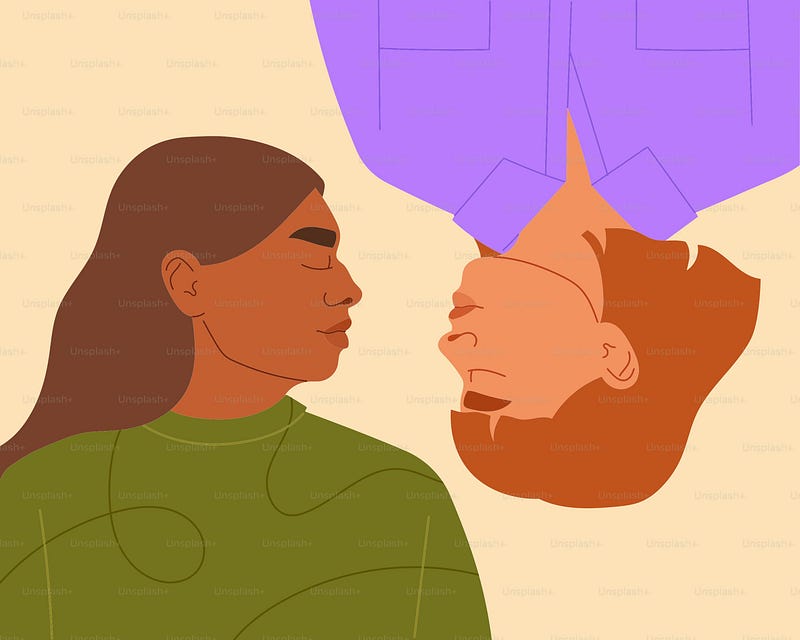Understanding the Dynamics of Sexual Violence in Families
Written on
Chapter 1: The Nature of Sexual Violence in Families
Sexual violence is a widespread concern that can manifest in numerous environments, including familial settings. This type of violence can lead to severe repercussions for individuals and their relationships, resulting in enduring trauma and emotional suffering. Grasping the mechanisms of sexual violence within families is essential for effectively preventing and addressing these detrimental actions.
Historically, sexual violence occurring within families has often been hushed and neglected, viewed as a taboo subject laden with shame and stigma. Victims were commonly blamed or disbelieved, fostering a culture of silence and secrecy. However, in recent years, there has been a notable increase in awareness regarding the prevalence and impact of sexual violence within familial contexts, largely due to the efforts of activists, scholars, and policymakers advocating for change.
This brings us to significant contributors in the discourse on sexual violence in families, such as Dr. Judith Herman, a distinguished psychiatrist and trauma specialist. Dr. Herman's innovative research on trauma and recovery has significantly influenced our comprehension of the psychological repercussions of sexual violence, especially in familial relationships. Her findings emphasize how trauma can affect survivors’ mental health, interpersonal relationships, and overall well-being.
In addition, Dr. Rebecca Campbell, a psychologist and researcher, has concentrated on the obstacles survivors encounter when reporting sexual violence within families. Her investigations have illuminated the intricate dynamics that may hinder victims from seeking assistance, including fears of retaliation, feelings of shame, and inadequate support. Dr. Campbell's work has been pivotal in shaping policies and initiatives aimed at assisting survivors and ensuring accountability for perpetrators.
The ramifications of sexual violence within families can be extensive and deep-seated, impacting not just the individual survivor but also their relatives, friends, and broader communities. Survivors might face various emotional and physical challenges, such as anxiety, depression, PTSD, and self-harming behaviors. These effects can lead to long-lasting repercussions that influence survivors’ relationships, professional lives, and overall quality of life.
From a societal perspective, sexual violence within families perpetuates harmful power structures and reinforces gender disparities. It fosters a culture of silence and victim-blaming that complicates the process for survivors to seek help. To effectively tackle this issue, it is vital to confront and dismantle these damaging norms, fostering an environment of safety, support, and accountability.
Despite the complexities in addressing sexual violence within families, there have been positive strides in recent years. Enhanced awareness and advocacy have brought attention to this issue, prompting policy changes that prioritize the rights and well-being of survivors. Numerous organizations and support services now provide resources and assistance to those affected by sexual violence, including counseling, legal aid, and crisis intervention.
Looking forward, it is imperative to build upon these efforts and strive for a future where sexual violence in families is unequivocally condemned. Achieving this will demand a united effort from individuals, communities, and policymakers to challenge harmful beliefs and practices, support survivors, and hold offenders accountable. Through collective action, we can work towards creating a safer and more equitable world for everyone.
This paragraph will result in an indented block of text, typically used for quoting other text.
Section 1.1: Key Figures in Understanding Family Violence
Dr. Judith Herman and Dr. Rebecca Campbell are pivotal in the discourse on family-related sexual violence. Their research has significantly shaped how we understand the psychological effects of trauma and the barriers faced by survivors.
Subsection 1.1.1: The Role of Dr. Judith Herman

Section 1.2: Breaking the Silence
Chapter 2: Advocacy and Awareness in Family Violence
The first video titled "Sociology of Family Sexual Assault" delves into the societal aspects of sexual violence within families, exploring how these dynamics manifest and the importance of addressing them.
The second video, "Sexual Abuse: Resident and Family Council Discussion Guide," provides insights into discussions surrounding sexual abuse, emphasizing the need for comprehensive dialogue and intervention strategies.